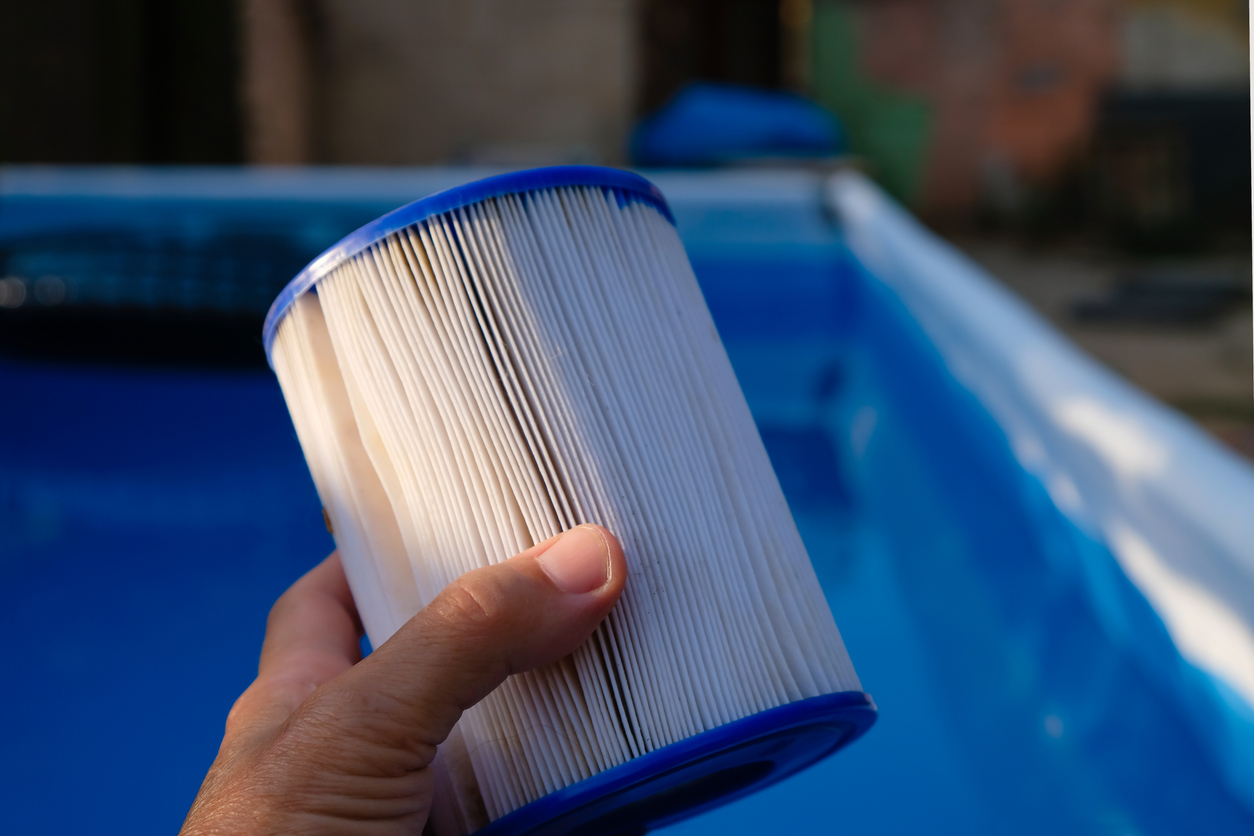Maintaining clean and efficient pool filtration is key to ensuring your pool remains a healthy and enjoyable place for relaxation and fun. For Portland pool owners, understanding when and why to change your pool filters can greatly impact the quality of your swimming experience. Here’s a guide on how often you should change your pool filters and the reasons behind it.
Understanding Pool Filter Types and Their Lifespans
- Sand Filters: Typically, sand filters should be replaced every 3-5 years. However, the actual frequency can depend on pool usage and the amount of debris the filter handles. It’s also important to perform backwashing approximately every month during the swimming season to maintain its efficiency.
- Cartridge Filters: These filters have a shorter lifespan and should generally be replaced every 1-2 years. Cartridge filters require regular cleaning every few weeks, especially during peak usage, to remove oils, hair, and other contaminants that can clog the filter.
- Diatomaceous Earth (DE) Filters: DE filters, which provide the finest level of filtration, need their diatomaceous earth replaced a few times a year, although the grids themselves typically last 2-3 years depending on their condition and maintenance.
Why Change Your Pool Filters?
- Maintain Water Clarity and Purity: Regularly changing your pool filter ensures that water remains clean, clear, and free of contaminants and microorganisms.
- Prevent Equipment Damage: A clogged or old filter puts additional strain on your pool pump and other circulation system components, which can lead to equipment failures and costly repairs.
- Enhance Energy Efficiency: A well-maintained filter requires less energy to pump water through, thereby reducing your overall energy costs.
- Improve Chemical Efficiency: Clean filters help maintain chemical balance by more effectively distributing pool chemicals, which can reduce the amount you need to use.
Signs It’s Time to Change Your Filter
- Increased Pressure Gauge Readings: If the pressure gauge on your filter shows readings that are 8-10 psi above normal, it’s a sign that your filter is clogged and may need cleaning or replacing.
- Cloudy Pool Water: If your water starts looking cloudy even with proper chemical balance, it might be due to a failing filter.
- Slow Water Circulation: Noticeably slower water flow or weaker return jets can indicate a filter issue.
Contact Rose City Pool & Spa
Ensure your pool remains in top condition by keeping up with your filter maintenance. If you’re unsure about the state of your pool filters or if it’s time for a change, contact Rose City Pool & Spa. Our experts are ready to help you evaluate your filter’s condition and recommend the best options for replacement or maintenance. Keep your pool water pristine and your system running smoothly by giving us a call today or visiting our website to learn more about our services. Visit our contact page to schedule an inspection and keep your pool running smoothly all season long.
